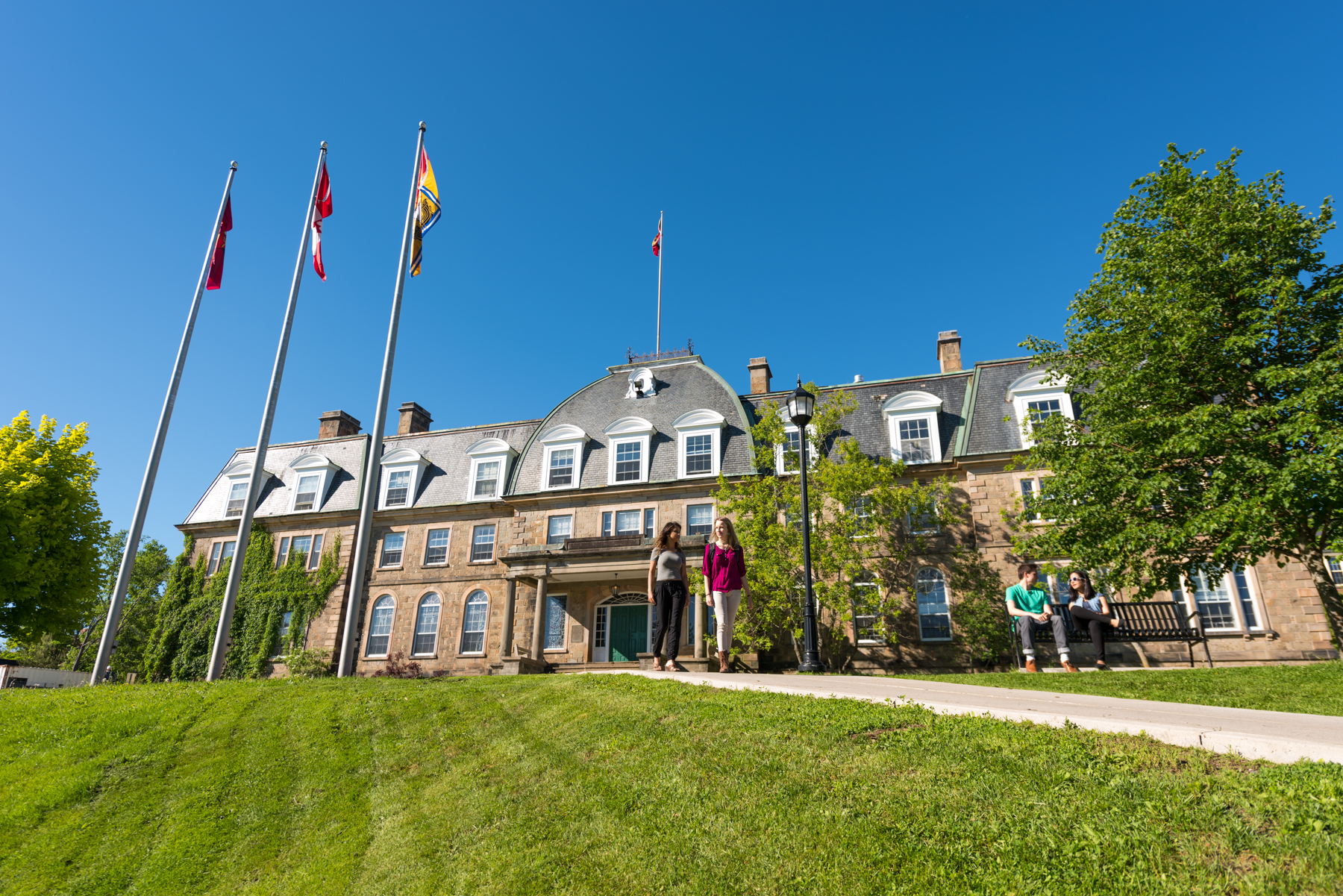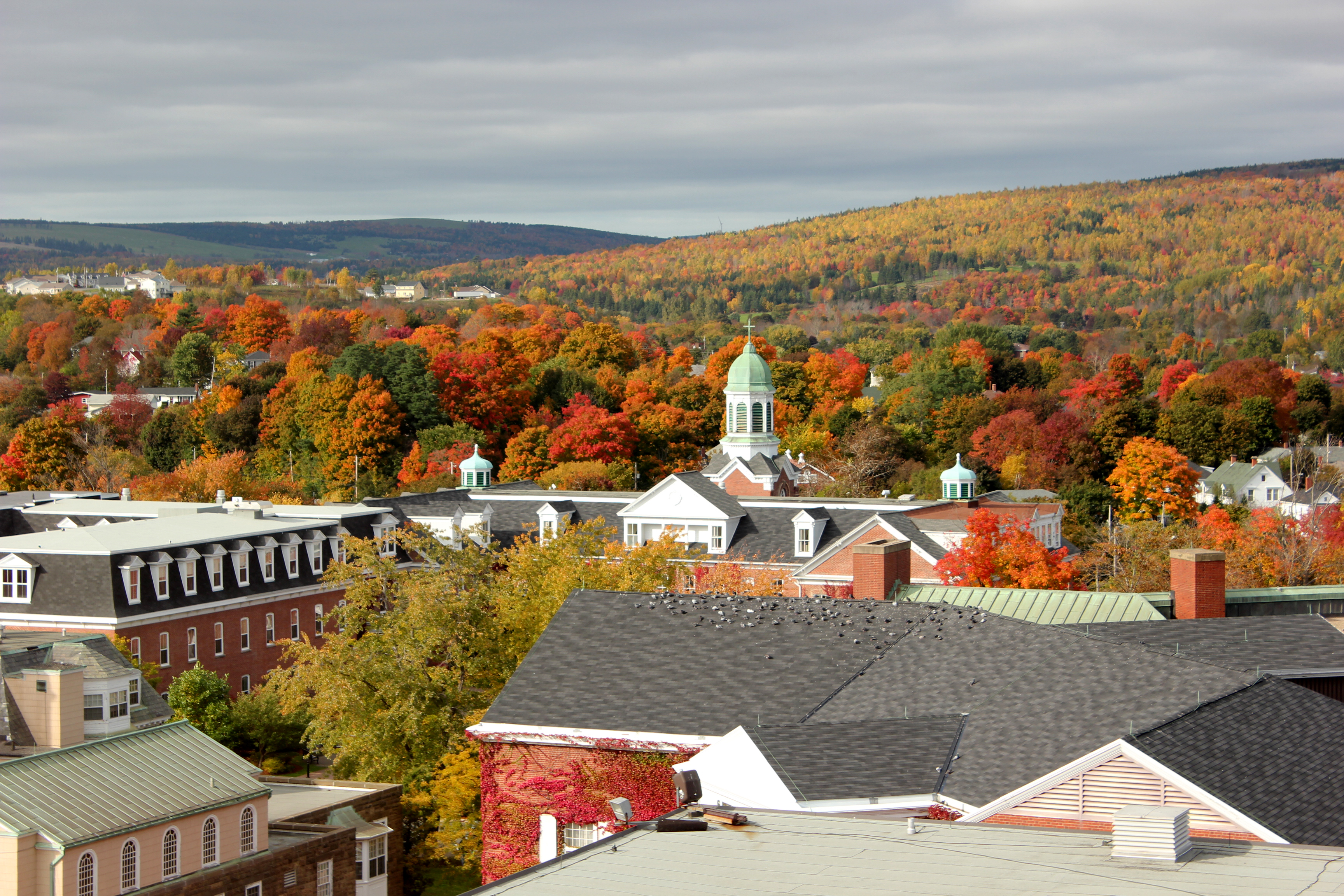|
Atlantic Geoscience Society
The Atlantic Geoscience Society (AGS), or Société Géoscientifique de l'Atlantique, is a scientific association for earth scientists working or interested in the Atlantic provinces. The membership comprises professional geologists in industry and academia, students, and interested members of the public. The society is affiliated with the Geological Association of Canada, the Canadian Society of Petroleum Geologists, and the American Association of Petroleum Geologists, and is a member of the Canadian Federation of Earth Sciences. The society publishes the geological journal '' Atlantic Geology''. Recent presidents The presidents since 2010: * 2010–2011: Grant Ferguson, Saint Francis Xavier University * 2011–2012: Jim Walker, Department of Natural Resources (New Brunswick) * 2012–2013: Elisabeth Kosters, Wolfville, Nova Scotia * 2013–2014: Grant Wach, Dalhousie University * 2014–2015: Cliff Stanley, Acadia University * 2015–2016: President: John Calder, Nova Scotia D ... [...More Info...] [...Related Items...] OR: [Wikipedia] [Google] [Baidu] |
Acadia University
Acadia University is a public, predominantly undergraduate university located in Wolfville, Nova Scotia, Canada, with some graduate programs at the master's level and one at the doctoral level. The enabling legislation consists of the Acadia University Act and the Amended Acadia University Act 2000. The Wolfville Campus houses Acadia University Archives and the Acadia University Art Gallery. Acadia offers over 200 degree combinations in the faculties of arts, pure and applied science, professional studies, and theology. The student-faculty ratio is 15:1 and the average class size is 28. Open Acadia offers correspondence and distance education courses. As of July 2017, Peter J. Ricketts is Acadia's current president. History Acadia began as an extension of Horton Academy (1828), which was founded in Horton, Nova Scotia, by Baptists from Nova Scotia and Queen's College (1838). The college was later named Acadia College. Acadia University, established at Wolfville, Nova Sc ... [...More Info...] [...Related Items...] OR: [Wikipedia] [Google] [Baidu] |
Department Of Natural Resources (New Brunswick)
The Department of Natural Resources and Energy Development is the department in the Government of New Brunswick, Canada, that oversees matters related to natural resources and energy development. It is responsible for management of the Province's forests including timber utilization; trail management; insect and disease protection including spruce budworm and gypsy moth; fire protection; management of the fish and wildlife resources and the issuing of hunting and angling licenses; management of mineral and hydrocarbon resources and associated support services including oil and natural gas development and production; geological surveys; management of Crown lands, including natural areas; oversight and development of the energy sector; and overseeing the delivery of the First Nations wood harvesting program. History The department, or a minister responsible for this area, has existed in one form or another since 1793. The Cabinet Minister responsible for the department was origi ... [...More Info...] [...Related Items...] OR: [Wikipedia] [Google] [Baidu] |
University Of New Brunswick
The University of New Brunswick (UNB) is a public university with two primary campuses in Fredericton and Saint John, New Brunswick, Saint John, New Brunswick. It is the oldest English-language university in Canada, and among the oldest public universities in North America.University of New Brunswic Retrieved on: August 18, 2008. UNB was founded by a group of seven Loyalist (American Revolution), Loyalists who left the United States after the American Revolution.Happy Birthday to the University of New Brunswick . ''MacLeans''. By Julia Belluz. Retrieved 2012-03-03. UNB has two main campuses: the original campus, founded in 1785 in Fredericton, and a smaller campus which opened in Saint John, New Brunswick, Saint John in ... [...More Info...] [...Related Items...] OR: [Wikipedia] [Google] [Baidu] |
Geological Survey Of Canada - Atlantic
Geology () is a branch of natural science concerned with Earth and other astronomical objects, the features or rocks of which it is composed, and the processes by which they change over time. Modern geology significantly overlaps all other Earth sciences, including hydrology, and so is treated as one major aspect of integrated Earth system science and planetary science. Geology describes the structure of the Earth on and beneath its surface, and the processes that have shaped that structure. It also provides tools to determine the relative and absolute ages of rocks found in a given location, and also to describe the histories of those rocks. By combining these tools, geologists are able to chronicle the geological history of the Earth as a whole, and also to demonstrate the age of the Earth. Geology provides the primary evidence for plate tectonics, the evolutionary history of life, and the Earth's past climates. Geologists broadly study the properties and processes of Earth ... [...More Info...] [...Related Items...] OR: [Wikipedia] [Google] [Baidu] |
Stewiacke
Stewiacke () is a town located in southern Colchester County, Nova Scotia, Colchester County, Nova Scotia, Canada. The town was incorporated on August 30, 1906. Geography The town is located in the Stewiacke Valley, at the confluence of the Stewiacke River, Stewiacke and Shubenacadie Rivers, and is a service and support centre for local agricultural communities as well as a service exit on Nova Scotia Highway 102, Highway 102. The town is noted as being located halfway between the North Pole and the Equator (which is actually in Fort Ellis (Nova Scotia), Alton, Nova Scotia). Controversy in the past over that claim stems from the fact that the Earth is not a perfect sphere and so the halfway mark lies approximately 16 km north of the 45th parallel north, 45th parallel. History Stewiacke was named in the language of the local Mi'kmaq language, Mi'kmaq First Nations in Canada, First Nations and is a word meaning "flowing out in small streams" and "winding river" or "whimpe ... [...More Info...] [...Related Items...] OR: [Wikipedia] [Google] [Baidu] |
Nova Scotia Department Of Natural Resources
A nova (plural novae or novas) is a transient astronomical event that causes the sudden appearance of a bright, apparently "new" star (hence the name "nova", which is Latin for "new") that slowly fades over weeks or months. Causes of the dramatic appearance of a nova vary, depending on the circumstances of the two progenitor stars. All observed novae involve white dwarfs in close binary systems. The main sub-classes of novae are classical novae, recurrent novae (RNe), and dwarf novae. They are all considered to be cataclysmic variable stars. Classical nova eruptions are the most common type. They are likely created in a close binary star system consisting of a white dwarf and either a main sequence, subgiant, or red giant star. When the orbital period falls in the range of several days to one day, the white dwarf is close enough to its companion star to start drawing accreted matter onto the surface of the white dwarf, which creates a dense but shallow atmosphere. This atmospher ... [...More Info...] [...Related Items...] OR: [Wikipedia] [Google] [Baidu] |
Dalhousie University
Dalhousie University (commonly known as Dal) is a large public research university in Nova Scotia, Canada, with three campuses in Halifax, a fourth in Bible Hill, and a second medical school campus in Saint John, New Brunswick. Dalhousie offers more than 4,000 courses, and over 200 degree programs in 13 undergraduate, graduate, and professional faculties. The university is a member of the U15, a group of research-intensive universities in Canada. The institution was established as ''Dalhousie College'', a nonsectarian institution established in 1818 by the eponymous Lieutenant Governor of Nova Scotia, George Ramsay, 9th Earl of Dalhousie, with education reformer, Dr. Thomas McCulloch, as its first principal. However, the college did not hold its first class until 1838, with operations remaining sporadic due to financial difficulties. The college was reorganized in 1863 and renamed ''The Governors of Dalhousie College and University''. The university formally changed its nam ... [...More Info...] [...Related Items...] OR: [Wikipedia] [Google] [Baidu] |
Saint Francis Xavier University
St. Francis Xavier University is a public undergraduate liberal arts university located in Antigonish, Nova Scotia, Canada. It is a member of the Maple League, a group of primarily undergraduate universities in Eastern Canada. History St. Francis Xavier College was founded as Arichat College, a Roman Catholic diocesan educational institution at Arichat, Nova Scotia, in 1853.St. Francis Xavier University ''Encyclopedia of Music in Canada'' Arichat College was moved to its present location in Antigonish, and established as St. Francis Xavier College in 1855. On May 7, 1866, St. Francis Xavier College was given university status, becoming St. Francis Xavier University. The university awarded its first degrees in 1868. [...More Info...] [...Related Items...] OR: [Wikipedia] [Google] [Baidu] |
Earth Science
Earth science or geoscience includes all fields of natural science related to the planet Earth. This is a branch of science dealing with the physical, chemical, and biological complex constitutions and synergistic linkages of Earth's four spheres, namely biosphere, hydrosphere, atmosphere, and geosphere. Earth science can be considered to be a branch of planetary science, but with a much older history. Earth science encompasses four main branches of study, the lithosphere, the hydrosphere, the atmosphere, and the biosphere, each of which is further broken down into more specialized fields. There are both reductionist and holistic approaches to Earth sciences. It is also the study of Earth and its neighbors in space. Some Earth scientists use their knowledge of the planet to locate and develop energy and mineral resources. Others study the impact of human activity on Earth's environment, and design methods to protect the planet. Some use their knowledge about Earth processe ... [...More Info...] [...Related Items...] OR: [Wikipedia] [Google] [Baidu] |
Atlantic Geology
''Atlantic Geology'' is a peer-reviewed scientific journal In academic publishing, a scientific journal is a periodical publication intended to further the progress of science, usually by reporting new research. Content Articles in scientific journals are mostly written by active scientists such ... covering the geology of Atlantic Canada and related areas. It is the only regional geology journal in Canada and publishes papers, notes and discussions on original research, and review papers. It was established in 1965 and since 1986 has been published by the Atlantic Geoscience Society with digital publishing assistance from the University of New Brunswick. The journal was one of the first all-digital publications in Canada.Barr, S (2014). The history of the Atlantic Geology journal: the first 50 years. Keynote talk at the Atlantic Geoscience Society annual colloquium, Wolfville, Nova Scotia, February 2014. History The journal was established in 1965 as ''Maritime Sediment ... [...More Info...] [...Related Items...] OR: [Wikipedia] [Google] [Baidu] |
Canadian Federation Of Earth Sciences
Canadians (french: Canadiens) are people identified with the country of Canada. This connection may be residential, legal, historical or cultural. For most Canadians, many (or all) of these connections exist and are collectively the source of their being ''Canadian''. Canada is a multilingual and multicultural society home to people of groups of many different ethnic, religious, and national origins, with the majority of the population made up of Old World immigrants and their descendants. Following the initial period of French and then the much larger British colonization, different waves (or peaks) of immigration and settlement of non-indigenous peoples took place over the course of nearly two centuries and continue today. Elements of Indigenous, French, British, and more recent immigrant customs, languages, and religions have combined to form the culture of Canada, and thus a Canadian identity. Canada has also been strongly influenced by its linguistic, geographic, and eco ... [...More Info...] [...Related Items...] OR: [Wikipedia] [Google] [Baidu] |







